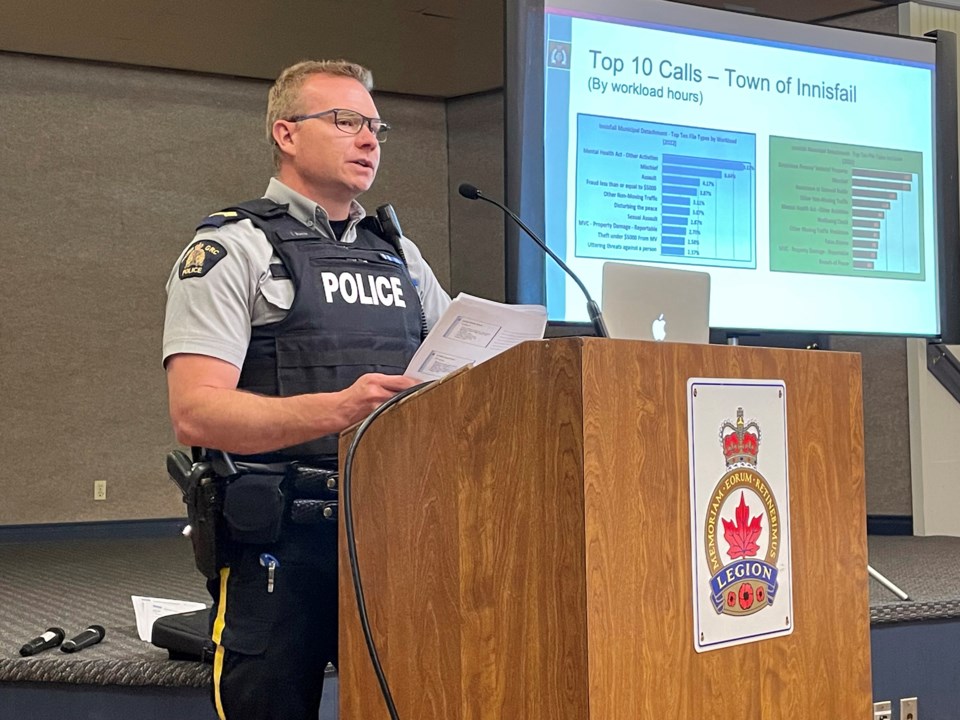INNISFAIL – Service from local Mounties is in high demand.
The Innisfail RCMP received 2,681 calls for service between January and December of 2024, by far the highest number since at least 2020 when local Mounties had 2,523, according to the detachment’s new Calls for Service report.
That’s a 21.1 per cent increase against figures for 2023 when local Mounties received 2,213 calls for service.
The report, which was included in Innisfail town council’s agenda package on Feb. 3, includes calls for service from the public, as well as self-generated and proactive files.
“It feels like we've been busier this last year. It just feels like we're consistently just a little bit busier than we have been,” said Innisfail RCMP Staff Sgt. Ian Ihme, the detachment commander. “It (report) justifies that feeling. It’s accurate. We are busier.”
The highest number of case specific calls received by local Mounties were 193 for suspicious person, vehicle or property issues.
This was followed by 148 calls for mischief matters.
The third most calls were Mental Health cases with 141 files, followed by wellbeing checks at 136.
However, it was Mental Health Act files in 2024 that were creating the heaviest workload for local Mounties by consuming 11.53 per cent of their time.
This issue was immediately followed by mischief files that took 4.75 per cent of the Innisfail RCMP’s workload.
“Mental health calls are definitely up,” said Ihme. “I think just as a society people are a lot more in tune with mental health issues to begin with, right?
“So, as a result, people are more concerned. There has definitely been a change, a societal shift over the years. Mental health is treated a lot more seriously, which is a good thing.”
However, Ihme noted there were not enough supports in place to handle the rising numbers of mental health files, which results in police, including the RCMP, to act as a “stop gap” for when there is not a service available to take care of them.
“We do refer them but there is an ongoing debate in society about whether or not police are the ones to be handling this or not,” said Ihme. “But regardless I digress and for whatever reason the calls for that have increased and they're very time consuming for us too because we end up sitting at the hospital for a decent amount of time looking after these people, much more than it did 10, 15, 20 years ago.
“And we put some things in place to try to speed that up.”
However, Ihme is also pointing to another factor that can’t be dismissed in terms of the increased volume of calls for service; higher need clients in the community who are driving at least some of the calls for service.
“When I go through the weekly logs of things that we've been reported to, the same names often come up; the same numbers of people are either causing crime or victims of crime too, not even necessarily victims of crime but are consumers of police services,” said Ihme.
“Sometimes it's not even a crime. It’s a call, maybe a mental health call but there's no crime that's been committed but that person is using police services.
“My thinking off the top of my head is that it's most likely just a few people that are driving extra need for resources. But it definitely makes for a busier force and the officers and constables are responding to the calls.
“They definitely notice it too, just a general feeling of being a little bit busier than what we normally are.”



